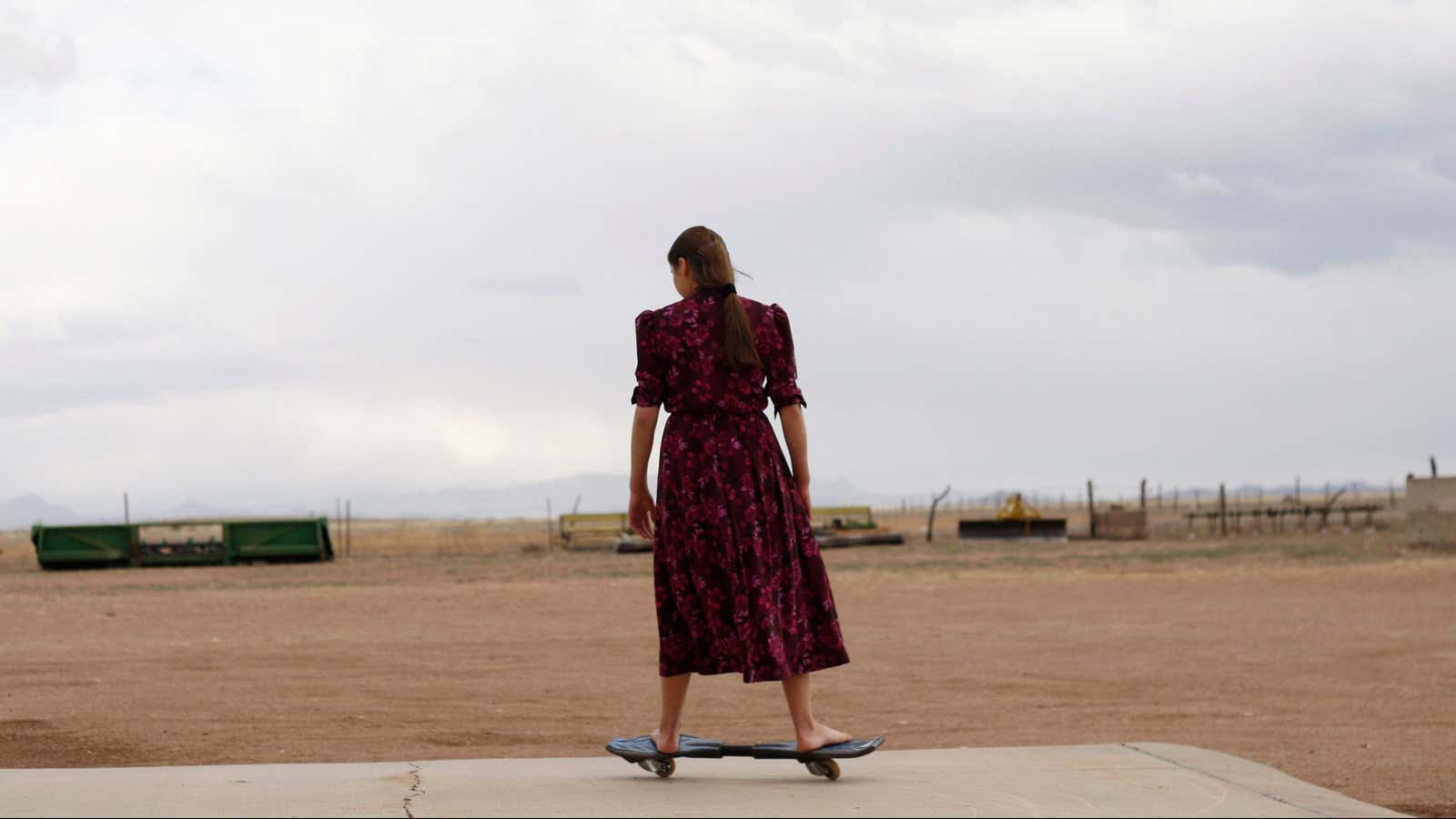Picture yourself going to a nice restaurant, asking to be seated alone, and eating a meal in silence.
For many of us, that simple act would be, if not impossible, at least not enjoyable. We’d worry about how we would be perceived by waiters, diners, and passersby. Would they think that we looked lonely—and would they judge us for it?
Of course, going out to eat by yourself isn’t necessarily a sign that you’re in need of companionship. But fearing the social stigma associated with loneliness can make it harder to admit when we do feel isolated. That’s why it’s important to remember that nothing shameful about feeling lonely; it’s an entirely normal human experience. And according to the biggest survey of loneliness ever completed, people are less judgmental about it than we might think.
The Loneliness Experiment, a national survey led by the BBC and the University of Manchester, Brunel University London, and the University of Exeter, gathered data from 55,000 people over 16 via a self-selecting online survey. It was available through a UK website and took about 40 minutes to complete.
The results of the survey suggest that people tend to be brutal toward themselves when they feel lonely. But researchers were surprised to find that the population as a whole does not stigmatize lonely types, according to Pamela Qualter, a professor of psychology at the University of Manchester, who designed the study.
Study participants were asked to imagine a hypothetical lonely person and then pick from a list of attributes they would assign to that individual. This is a standard way of gauging societal perception, Qualter explains: “If there is a stigma in society, they will pick those more negative characteristics,” she said. But people didn’t assign the imaginary lonely person a ton of negative traits.
By contrast, when the participant was asked to recall a time they themselves felt lonely, and asked whether they had talked to anyone about it at the time, researchers measured a powerful resistance to admitting to loneliness because of its negative connotations.
“What we found was there was a huge amount of self-shaming,” Qualter told Quartz. “So whilst we have on the one hand this data that suggests to us that people don’t see lonely individuals as having a particular character flaw, individuals feel that they do [themselves] have [such flaws].”
“It’s almost like there seems to be this self-stigmatization that might not be there at a societal level.”
Of course, the study was self-selecting, so people who chose to participate might have been more understanding of the state of loneliness than those who did not. However, with such a big study group, the researchers also felt confident that they had gained some insights into society as a whole.
The results were particularly surprising because they go against the received wisdom of previous research. Much of our approach to loneliness today comes from research carried out in the 1980s and 1990s. A number of often-cited studies found that interview subjects perceived “lonely” individuals more negatively and—for example—were less likely to want to be friends with them. But these studies were carried out on relatively small groups, and almost all on students. Qualter suggests that the age of participants may have had an effect on the findings. The new research used similar methods to previous experiments, but participants could be any age over 16, giving a much broader picture of societal perception.
“It’s quite new in the literature,” Qualter said. “We’ve talked about this huge societal stigma, that people won’t talk about [loneliness] because there’s so much shame about it. Which there is, but actually it’s not coming from the outside world, it’s something the individual is feeling, probably as part of their experience of loneliness.”
And so perhaps there is less social stigma against lonely people than we’ve previously thought. Another possibility is that society has shifted, and we’ve actually become more understanding. ““I think we’re a lot more open, aren’t we, to talking about loneliness?” Qualter said.
The BBC/University of Manchester survey did find some differences related to loneliness and aging, although not the ones that researchers might have expected. Young people in the recent study, for example, were not more inclined to stigmatize loneliness in others, but they did suffer most from loneliness. Those aged 16 to 24 were found to be the loneliest group, with 40% saying they felt lonely “often” or “very often.” They also reported more intense feelings than other age groups.
Older individuals over retirement age, meanwhile, proved particularly resistant to admitting loneliness. Qualter hypothesized that this might be because of fear of practical consequences: That admitting to loneliness might mean they should stop living on their own, for example.
Loneliness is easier to deal with if you’re not alone. That’s a truism, but it’s also an irony that those experiencing the problem may block themselves from seeking help—perhaps they wrongly fear they will be judged harshly for wanting social connections.
Meanwhile, anyone who’s feeling lonely should remember that they’re in good company. Artists have been writing about their own experience of loneliness for centuries, noting both their own struggles with it and—sometimes—its creative potential. Virginia Woolf, who often documented the mental strain of her own loneliness, wrote in her diary:
“Here is something to fight; and when I wake early I say to myself Fight, fight. If I could catch the feeling, I would; the feeling of the singing of the real world, as one is driven by loneliness and silence from the habitable world… Anything is possible.”
